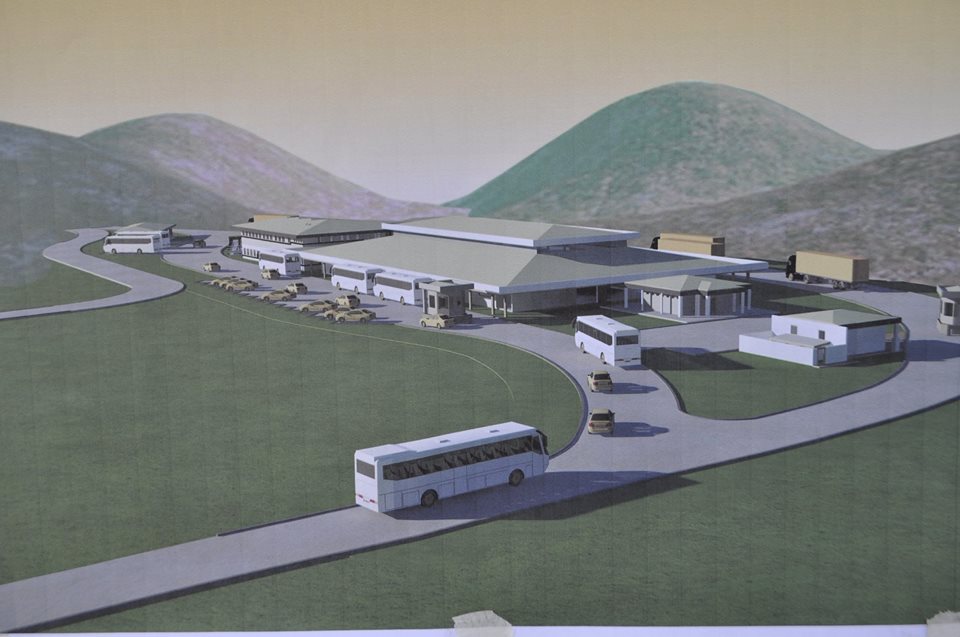Northern Corridor success: New World Bank report highlights logistics on EAC’s Northern Corridor as an inspiring African success story
Finally, the massive investments in projects to remove logistical bottlenecks in the East African Community are starting to pay off great dividends. A new World Bank report dubbed, ‘Trade Logistics in the Global Economy 2016’ has indicated that Kenya, Uganda, Tanzania and Rwanda are among the top ten countries on the continent with the best trade logistics. Ranked 58, and having jumped eight places from 66 in 2010, Uganda is rates as the second best-performer in the EAC region after Kenya (42), on the Logistics Performance Index (LPI), a measure of the efficiency of international supply chains.

Tanzania follows Uganda at 61, Rwanda at 62 and Burundi trailing at 107 out of the 160 countries surveyed. The EAC region scored higher than Central and West Africa thanks to the significant improvement in trade efficiency on the Northern Corridor, the transport network that links Burundi, Rwanda, and Uganda with the port of Mombasa in Kenya and also serves parts of the DR Congo, South Sudan, and Tanzania.
The report says the Corridor was once known for multiple barriers to trade and transport, including lengthy dwell times at Mombasa port and cumbersome clearance procedures but following a series of reforms since 2012, the logistics environment has dramatically improved thus driving down logistics costs.
Among the reforms is the Single Customs Territory, which enables customs clearances to be made at the port of entry at Mombasa with the result that cargo does not have to be transported under customs control because official payments have already been made. “The system has significantly reduced the administrative burden and shortened the time required for customs formalities,” the report reads in part. “As a result, the cost of doing business has decreased by about 50%.”
Other important trade facilitation reforms that have had a positive impact on the Northern Corridor include: a regional customs transit system, real-time sharing of customs information and digital tracking systems, introducing cargo tracking systems, and introducing networked single windows, building one-stop border posts, among others. Consequently, the time taken to move cargo from Mombasa to Kampala dropped from 18 days to 3 days and from Mombasa to Kigali from 21 days to six days.
The logistics environment can be quickly improved if there is strong political will
“The case of the Northern Corridor shows that the logistics environment can be quickly improved if there is strong political will for administrative reforms. In some cases, the reforms even preceded the infrastructure development. The example also shows that, considering the benefits for traders, the returns on investment in soft reforms can be much higher than any infrastructure project,” the report adds.
According to the World Bank, logistics performance both in international trade and domestically is central to the economic growth and competitiveness of countries, and the logistics sector is now recognised as one of the core pillars of economic development.
The report says land-locked countries are no longer automatically the most unfortunate as evidenced by the performance of Rwanda and Uganda, which also happen to be on the list of countries over performing their income group peers.
Uganda is listed as one of the countries that have worked aggressively on improving border management reforms targeting improvements in customs processing, reduction of physical inspection, automation, and the implementation of single windows to facilitate information sharing, as well as the transparency of information and transactions for traders.
With support from Trade Mark East Africa (TMEA), the EAC has seen a massive impact on enhancing business regulations for trade, improving export capability and developing efficient trade logistics services. Apart from support to government bodies and institutions across the region, TMEA has also launched the Logistics Innovation for Trade (LIFT) Fund to provide finance to private transport and logistics companies in East Africa. The initiative provides grants ranging from $250,000 to $750,000.

Dicksons Kateshumbwa, the commissioner for customs at the Uganda Revenue Authority (URA), attributed the success to the Single Customs Territory, which he said has greatly improved business turn-around times. “As you are aware, we have deployed up to 15 URA staff at Mombasa, Nairobi, Eldoret and Nakuru and all goods destined to Uganda are cleared at Mombasa,” he said.
To further reduce the turn-around times, URA introduced an electronic cargo tracking system whereby cargo is followed electronically instead of physical URA escorts.
“We operate a one-border-stop where we are working with other agencies like UNBS to have goods cleared at once unlike in the past. “This in addition to good infrastructure has greatly eased doing business because goods are delivered on time,” he added.
Logistics is important to the national economy because it connects firms to domestic and international markets through reliable supply chain networks. Countries characterized by low logistics performance face high costs because of transportation costs and unreliable supply chains, which is a major handicap in integrating and competing in global value chains.
Gideon Badagawa, the Private Sector Foundation Uganda (PSFU) boss, welcomed the good rating but said beyond the improved logistics we may also want to look at how we support tradables to take advantage of markets around us. “Good progress in the right direction (non-tradables) but we must quickly do more. Without supporting enterprises on tradables i.e product development, standards, cooperative movements etc it will take ages to compete in these markets in-spite of the fairly good infrastructure into such markets. Let us focus more on production and value addition for export,” he said.
Top 10 in Africa
| Country | Rank/166 | |
| 1 | South Africa | 20 |
| 2 | Kenya | 42 |
| 3 | Egypt | 49 |
| 4 | Botswana | 57 |
| 5 | Uganda | 58 |
| 6 | Tanzania | 61 |
| 7 | Rwanda | 62 |
| 8 | Algeria | 75 |
| 9 | Namibia | 79 |
| 10 | Burkina Faso | 81 |
****
editor@newvision.co.ug
 The Independent Uganda: You get the Truth we Pay the Price
The Independent Uganda: You get the Truth we Pay the Price


